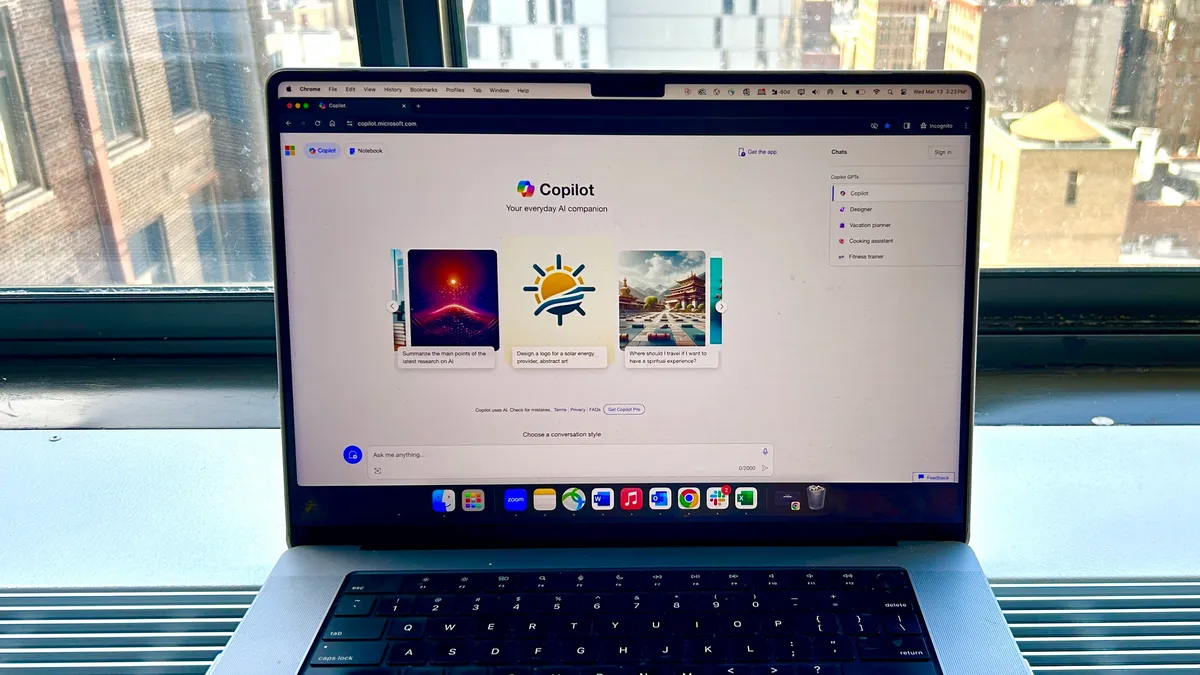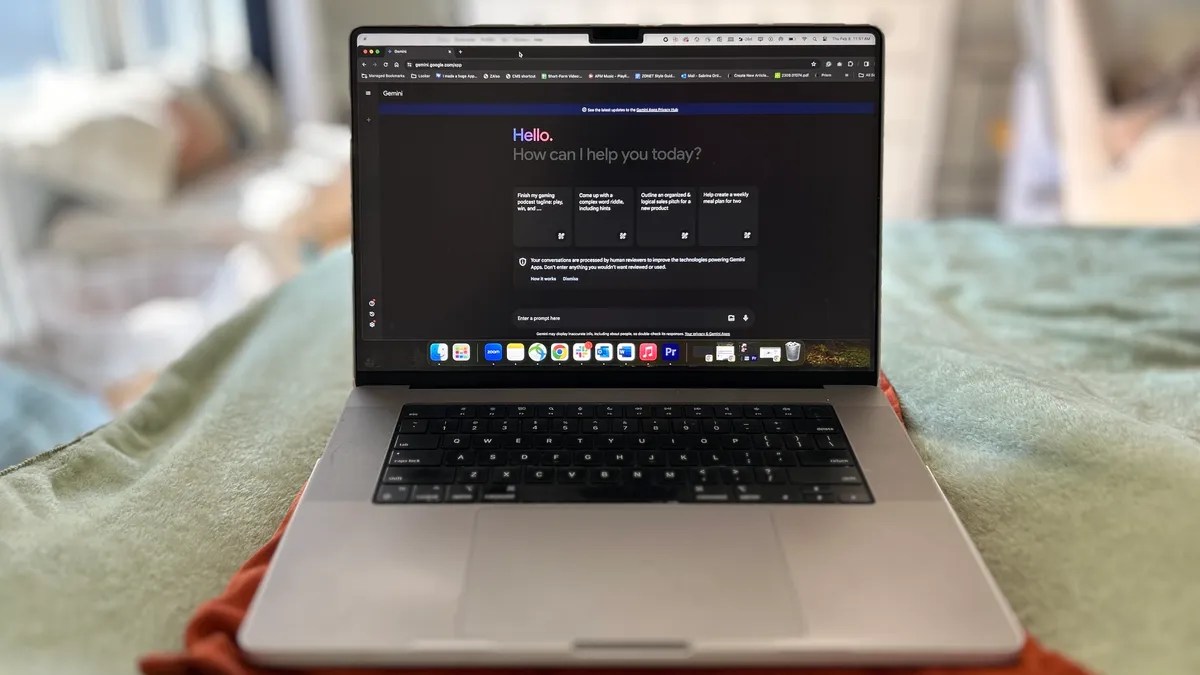ChatGPT Sparks an AI Race and Governments Struggle to Keep Up
The European AI Office and the UK government are attempting to recruit specialists for researching and overseeing the AI industry, but their salary offers fall significantly below market compensation.
Regulators lack affordable AI expertise.
💡 Key Takeaways – As the development of powerful AI models like ChatGPT accelerates, governments are scrambling to hire AI experts to regulate and oversee their implementation. – However, the low salaries offered by government agencies have raised concerns among AI researchers and engineers. – Companies in the private sector offer significantly higher salaries and better working environments, leading to a brain drain in government agencies. – Governments need to offer more competitive salaries to attract top talent and bridge the gap with the private sector.
The unstoppable rise of ChatGPT, an advanced AI model, has sent shockwaves through the regulatory landscape. Companies are in a race to develop and unleash even more powerful AI models, while lawmakers and regulators around the world are scrambling to catch up and rein in this rapid development.
Governments are setting up new AI programs and urgently looking to hire AI experts. However, some of the job ads have raised eyebrows and even elicited chuckles from the AI research and engineering community due to their low salary offerings. It seems that in the midst of the AI boom, these wages appear pitiful.
For instance, the European AI Office, which plays a central role in implementing the EU’s AI Act, posted job vacancies earlier this month. They are looking for technology specialists in AI with a master’s degree in computer science or engineering and at least one year of experience. However, the offered annual salary of €47,320 ($51,730) seems far below the eye-watering sums being offered within the industry.
Likewise, the UK government’s Department for Science, Innovation & Technology is also in need of AI experts. One of their open positions is for the Head of the International AI Safety Report. The job involves shepherding a landmark global report resulting from the UK’s global AI Safety Summit last year. The salary offered for this position is £64,660 ($82,730) per year.
- Microsoft’s Copilot AI Assistant Gets a Turbo Boost with OpenAI’s G...
- Amazon’s AI-Powered Tools Simplify Product Page Creation
- Microsoft Upgrades Copilot with GPT-4 Turbo: Here’s What You Need t...
Comparing these salaries to the compensation packages available in the private sector reveals a substantial gap. According to Levels.fyi, a platform that compiles verified tech industry compensation data, the median total compensation for workers at OpenAI, the organization behind ChatGPT, is a staggering $560,000, including stock grants. Even the lowest verified compensation at OpenAI, for a recruiter, stands at $190,000.
The brain drain phenomenon is affecting governments worldwide. Private companies not only offer more attractive working environments but also significantly higher salaries. This competition between the private and public sectors is widening the gap even further. Convincing the best and brightest to take a massive pay cut in favor of government roles becomes a daunting task.
Outside the Ballpark: The Urgency to Bridge the Gap
It is not uncommon for government jobs to pay less than those in the industry, but the current AI boom exacerbates this discrepancy. As tech companies and corporations across various industries rush to embrace AI, they are fiercely competing for AI-savvy talent. The fast-paced nature of AI advancements necessitates swift action from regulators.
Jack Clark, a cofounder of Anthropic, compared the salary offer from the EU AI Office to tech industry internships and highlighted the need for more competitive wages. “You don’t need to be on par with industry salaries,” Clark wrote, “but you definitely need to be in the ballpark.”
The European AI Office and the UK’s AI Safety Institute, which are striving to balance the power of the tech industry, have made efforts to attract top talent. They benchmark their salaries against those offered in the industry but, according to Harry Law, a researcher in the history and philosophy of AI at the University of Cambridge, this only partially closes the gap. Relaxing existing rules and targeting recent graduates may help bridge the divide.
Government and public sector AI organizations can offer non-monetary benefits that make their offers more appealing. While they can’t compete with the likes of OpenAI in terms of salary, the principles and mission-driven approach of these agencies can attract candidates seeking a greater purpose.
However, not everyone is optimistic about this strategy. There is a genuine concern that archaic governments will continue to struggle with poor talent. Today, AI talent is highly sought after, and the brain drain will likely persist unless governments take more decisive action.
🤔 Readers’ Questions and Concerns
Q: How will the brain drain affect government AI initiatives?
A: The brain drain poses a significant challenge to the success of government AI initiatives. With talented individuals gravitating towards the private sector for superior working environments and higher salaries, government agencies are left with a talent deficit. This deficit could hinder their ability to effectively regulate and oversee AI development, potentially leaving the public at a disadvantage.
Q: What measures can governments take to bridge the salary gap?
A: Governments can adopt multiple strategies to bridge the salary gap between the public and private sectors. First, they can allocate more resources towards competitive compensation packages, catering to the financial expectations of AI experts. Second, governments can offer additional non-monetary benefits, such as opportunities for research collaboration, flexible working arrangements, and a sense of purpose in contributing to the greater good. By striking a balance between compensation and intangible benefits, governments can attract and retain top AI talent.
Q: How can recent graduates contribute to government AI organizations?
A: Recent graduates can make significant contributions to government AI organizations by bringing fresh perspectives, enthusiasm, and an eagerness to learn. While they may not possess extensive industry experience, their foundational knowledge, coupled with training and mentorship opportunities, can help them grow and excel in their roles. Emerging talents can also assist in bridging the skills gap between experienced professionals and the evolving AI landscape.
Q: Will the AI Safety Institute and similar organizations have enough resources to fulfill their objectives?
A: The success of organizations like the AI Safety Institute depends on the resources they are provided. To fulfill their crucial mission of ensuring the safety of AI models, these organizations require adequate funding, infrastructure, and staffing. Governments should recognize the significance of their work and allocate sufficient resources to support their ongoing efforts. Without proper support, these organizations may face limitations that hinder their ability to effectively evaluate and regulate AI models.
🌟 The Future of Government AI Initiatives
As the AI industry continues to evolve, governments must adapt their strategies to meet the challenges of regulating this rapidly advancing technology. Bridging the salary gap is a vital step towards attracting and retaining top AI talent within government agencies. Additionally, establishing strong collaborations between public and private sectors, investing in ongoing education and training programs, and providing incentives for innovation can help shape a future where government agencies possess the expertise and resources needed to navigate the AI landscape effectively.
References: – Apple Offers Open NFC Payment Technology to Third-Party Developers in Europe – Betfred and Bet365 Owners Listed Among Top Five UK Taxpayers – Accounting Giant Deloitte Seeking Specialists in Crypto Investigations – Kid Launches Solution That Helps Game Developers Comply with Ever-Changing Child Safety Regulations – Microsoft Facing Controversial Kids’ Online Safety Bill – OpenAI Moves to Shrink Regulatory Risk in EU Data Privacy – AI-Powered Search Engine Perplexity.AI Valued at $520 Million – Best Phones Under $500 in 2024 with Great Features and Lower Prices
Make sure to share this article with fellow tech enthusiasts and let us know your thoughts on government AI initiatives! 💻🌍🚀






